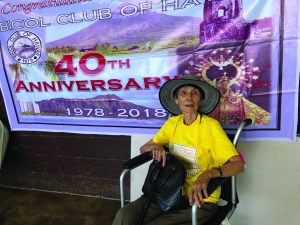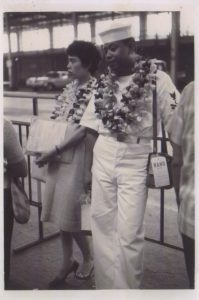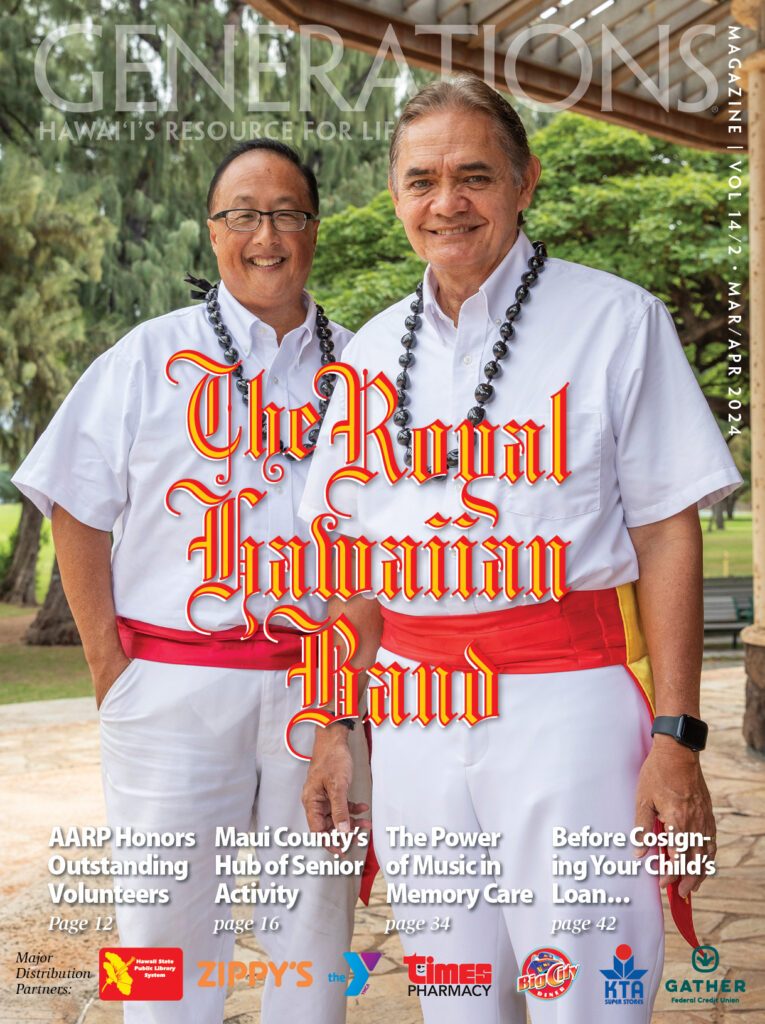My mother, Paz Pontillas Celebrado, graduated from college in the Philippines and dreamed of coming to America to start her nursing career. Her dream came true when she fell in love with my father, Felipe Celebrado, a U.S. Navy man. They immigrated to America in 1959 and she adjusted to a new life as a military wife and mother, and as a nurse for the next 40-plus years.
She expanded her traditional nursing role, becoming a home- and community-based case manager. In addition, my mother was one of the first care/boarding home operators in the state.
Having been exposed to what it takes to be a care manager at a very young age as I watched my mother tend to disabled clients in our home, I followed in my mother’s footsteps. I pursued a social work degree from the University of Hawai‘i at Mānoa and eventually worked at HMSA as a care coordinator, supervisor and manager.
After nearly 20 years at HMSA, I realized that my husband and I had become members of the “sandwich generation,” caring for three children and aging parents. When my father became seriously ill in 2008, my mother embraced her role as his personal nurse until he passed away from lung cancer in 2009.
But after he was gone, my mom began showing signs of mild dementia or cognitive impairment. I left HMSA and looked for a job that would allow me to work from home. I found an opportunity as a community outreach liaison with Urgent Care Hawaii, working alongside a longtime case management colleague Donna Schmidt, owner of the company. Finding employment that allowed remote work provided me the flexibility I needed to earn an income while raising our children and caring for my mother in our home.
This is what I learned through my experiences as a caregiver.
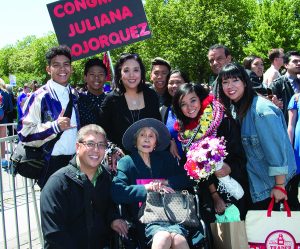
My niece, Juliana, graduated from college in 2017. Mom was always proud to attend any of her family’s celebrations.
■ Caregiving is a marathon, not a sprint. It’s a cross-country run with highs, lows and unexpected obstacles. Be prepared and plan for the long course. Read, attend caregiver workshops and join caregiver support groups. Learn what resources are available at every stage of the journey.
■ Plan around your loved one’s abilities. My mom always loved grocery shopping and going to Longs. So when she lost her ability to drive, I signed her up for services through Project Dana, which provided my mom with three volunteers who would take turns taking her shopping. She relished her outings!
■ Identify what brings them joy. Surround your loved one with those whom they are familiar with and those who will bring them comfort. Is there a church group, civic group or volunteer group that your loved one enjoys? For my mom, it was her Filipino club — The Bicol Club of Hawaii. The social connection, and common native language, food and culture provided the comfort my parents needed in their final years. My mother enjoyed attending celebrations and events that would make her feel socially connected and valued. During her final months, members of the Bicol Club would bring her favorite foods that would stimulate her declining appetite. It was great to have the support and respite provided by familiar faces and friends who could bring back memories of better times for my mother. If you have that kind of social connection available, utilize these invaluable relationships.
■ Practice self-care. As a caregiver, you need a break. You cannot be a caregiver 24/7 without experiencing burnout. Schedule time for yourself to recharge your batteries. Find a niche, hobby or interest that will provide that little slice of happiness to escape from day-to-day caregiving. Exercise regularly. I have heard too many stories about caregivers who begin to experience health issues due neglect of their own health after the loved one passes away.
■ Make memories as you provide caregiving. Embrace the time you have with your loved one by including them in celebrations, special occasions and travel plans. My mother was able to travel until a year before she passed away. I became a specialized travel agent, planning all details of the itinerary. Anticipatory planning included identifying urgent and emergent medical services available in transit and at our destination. Packing included durable medical equipment and devices, sufficient medication for the entire trip and packing that extra change of clothes. The memories spent with dear family and friends were priceless and helped my mother feel a sense of completion as she checked off items on her lengthy bucket list.
■ Leverage all the support you can. The last 10 years were not easy. I could not have done it without the support of my family. As the primary caregiver, I controlled the calendar and coordination of schedules. I was the quarterback. But we were a team. Fortunately, there were builtin advantages in our multi-generational home, where we were able to provide 24/7 care for my mother among us all.
■ Cultivate good relationships with each member of your loved one’s healthcare team. My parent’s PCP took care of them for over 40 years. He was always available to help me navigate and coordinate my parents care needs. The supportive services provided by Project Dana, St. Francis Hospice – Bereavement Support Group and Hospice, Kupuna Care Hawaii, Urgent Care Hawaii and Hale Hau‘oli Adult Day Care were the foundational support that allowed me and my family keep my mom comfortable in her own home until the very end.
■ You are your loved one’s patient advocate. If they are no longer able to communicate their needs, then you must. You need to have the conversations early in the caregiving process to understand the care preferences and wishes in order to honor their wishes. There may be conflicts that arise within the family and it is important to remember that the focus should be on your loved one. It is important to consider a good mediator or elder care attorney if you and your family are not able to represent your loved one’s wishes.
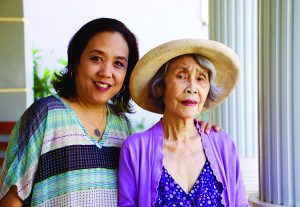 Mom passed away in 2019 according to her wishes; peaceful, at home, surrounded by family and dear friends. I can look at the last 10 years of caregiving with no regrets and feel blessed with great memories. I wouldn’t have done it any other way. I hope these reflections on my caregiving journey will help you in yours. You have an incredibly difficult job, but it can be do-able with the right plan, support team and resources.
Mom passed away in 2019 according to her wishes; peaceful, at home, surrounded by family and dear friends. I can look at the last 10 years of caregiving with no regrets and feel blessed with great memories. I wouldn’t have done it any other way. I hope these reflections on my caregiving journey will help you in yours. You have an incredibly difficult job, but it can be do-able with the right plan, support team and resources.
CAREOPS CONSULT LLC
808-778-2752 | melissacareopsconsult@gmail.com
Provides healthcare consultation services to organizations that need
assistance with business development, project management, product or
program development.

